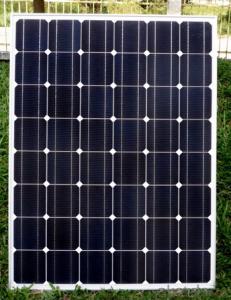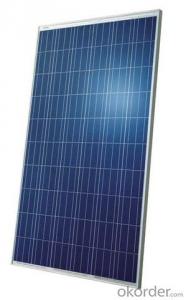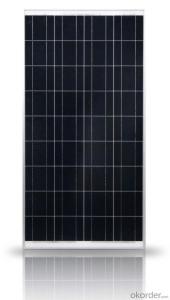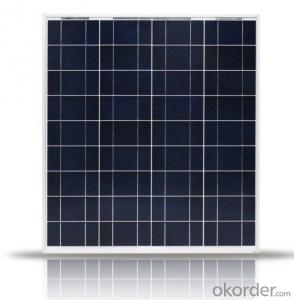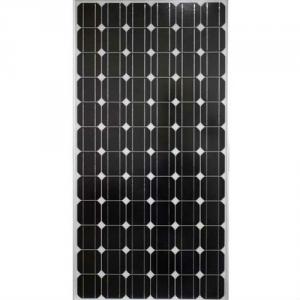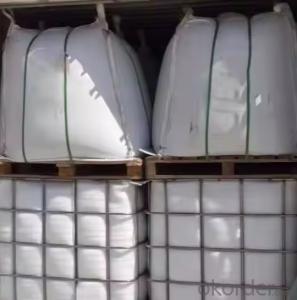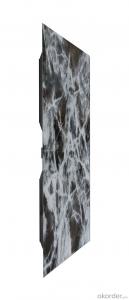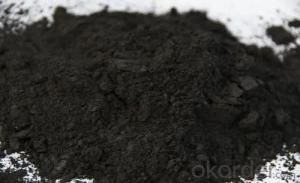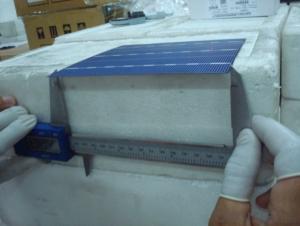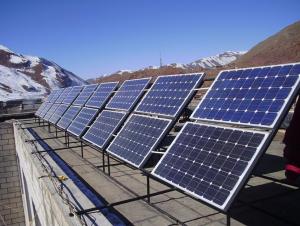Poly Solar Panel 10W A Grade with 12 Years Warranty
- Loading Port:
- Shanghai
- Payment Terms:
- TT OR LC
- Min Order Qty:
- 100 watt
- Supply Capability:
- 1000 watt/month
OKorder Service Pledge
OKorder Financial Service
You Might Also Like
Item specifice
Poly Solar Panel 10W A Grade with 12 Years Warranty
Production description
Photovoltaics were initially solely used as a source of electricity for small and medium-sized applications, from the calculator powered by a single solar cell to remote homes powered by an off-grid rooftop PV system. As the cost of solar electricity has fallen, the number of grid-connected solar PV systems has grown into the millions and utility-scale solar power stations with hundreds of megawatts are being built. Solar PV is rapidly becoming an inexpensive, low-carbon technology to harness renewable energy from the Sun.The International Energy Agency projected in 2014 that under its "high renewables" scenario, by 2050, solar photovoltaics and concentrated solar power would contribute about 16 and 11 percent, respectively, of the worldwide electricity consumption, and solar would be the world's largest source of electricity. Most solar installations would be in China and India.[2]
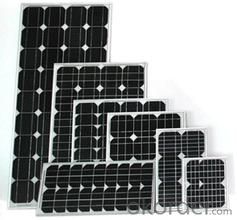
Application
Commercial
Industrial
Residential
Product Feature
12 years quality warranty 25 years performance output.
Free for less than 5 pcs sample requirement
Free to replace or repair or refund if products fail to conform to the PI requirement.
Packaging
28pcs into carton 2carton into pallets 28pallets into a 40ft container
Delivery
After 25 days for manufacturered goods as soon as we received full payment.
After 10 days for stock goods as soon as we received full payment.
- Q:Can solar cells be used for powering manufacturing facilities?
- Yes, solar cells can be used for powering manufacturing facilities. Solar energy is a renewable and clean source of power that can be harnessed through solar cells, also known as photovoltaic (PV) panels. By installing a sufficient number of solar panels, manufacturing facilities can generate electricity to meet their energy demands. This not only reduces reliance on traditional fossil fuels but also helps in reducing greenhouse gas emissions, making it an environmentally friendly solution for powering manufacturing operations.
- Q:What is the role of solar cell inverters in grid-tied systems?
- The role of solar cell inverters in grid-tied systems is to convert the direct current (DC) energy generated by solar panels into alternating current (AC) energy that is compatible with the electrical grid. These inverters ensure that the solar energy produced by the panels can be used to power appliances and devices in homes or businesses, and any excess energy can be fed back into the grid for others to use. Additionally, solar cell inverters also provide important safety features, such as isolating the solar system from the grid during power outages to protect utility workers.
- Q:How do solar cells impact local economies?
- Solar cells can have a positive impact on local economies by creating jobs in the renewable energy sector, attracting investments, and reducing energy costs for businesses and households. Additionally, the deployment of solar cells can stimulate economic growth through increased demand for related goods and services, ultimately contributing to the development of sustainable and resilient local economies.
- Q:Can solar cells be used for hydrogen production?
- Yes, solar cells can be used for hydrogen production through a process called photoelectrolysis, where the energy from sunlight is used to split water molecules into hydrogen and oxygen.
- Q:What is a good introduction of solar cell?
- You should start with a nice ppt.
- Q:How do solar cells perform in areas with high levels of dust?
- Solar cells can be affected by high levels of dust in areas. The accumulation of dust on the surface of solar cells can reduce their efficiency by blocking sunlight and reducing the amount of energy they can generate. Regular cleaning and maintenance are required to ensure optimal performance in dusty environments.
- Q:Can solar cells be used in electric vehicle charging stations?
- Yes, solar cells can be used in electric vehicle charging stations. Solar panels can generate electricity from sunlight, which can then be used to charge electric vehicles. This provides a sustainable and renewable energy source for charging stations, reducing dependency on traditional power grids and reducing carbon emissions.
- Q:How many types of solar cells are now being used in real life?
- There are many different types depends on different materials.
- Q:What is the role of solar cells in powering emergency response systems?
- Solar cells play a crucial role in powering emergency response systems by converting sunlight into electricity. This renewable energy source ensures a continuous and reliable power supply, allowing emergency response systems to function independently during disasters or in remote areas where grid power might be unavailable. Solar cells provide a sustainable and environmentally friendly solution, reducing the reliance on fossil fuels and ensuring the efficiency and effectiveness of emergency response operations.
- Q:How do solar cells perform in areas with high levels of water pollution?
- Solar cells may be adversely affected in areas with high levels of water pollution. The presence of pollutants, such as chemicals or particles, in the water can reduce the amount of sunlight reaching the solar cells, thereby decreasing their efficiency. Additionally, water pollution can lead to the accumulation of dirt, debris, or algae on the surface of the solar panels, further diminishing their performance. Regular cleaning and maintenance are essential in such areas to ensure optimal functioning of solar cells.
1. Manufacturer Overview |
|
|---|---|
| Location | |
| Year Established | |
| Annual Output Value | |
| Main Markets | |
| Company Certifications | |
2. Manufacturer Certificates |
|
|---|---|
| a) Certification Name | |
| Range | |
| Reference | |
| Validity Period | |
3. Manufacturer Capability |
|
|---|---|
| a)Trade Capacity | |
| Nearest Port | |
| Export Percentage | |
| No.of Employees in Trade Department | |
| Language Spoken: | |
| b)Factory Information | |
| Factory Size: | |
| No. of Production Lines | |
| Contract Manufacturing | |
| Product Price Range | |
Send your message to us
Poly Solar Panel 10W A Grade with 12 Years Warranty
- Loading Port:
- Shanghai
- Payment Terms:
- TT OR LC
- Min Order Qty:
- 100 watt
- Supply Capability:
- 1000 watt/month
OKorder Service Pledge
OKorder Financial Service
Similar products
New products
Hot products
Related keywords
